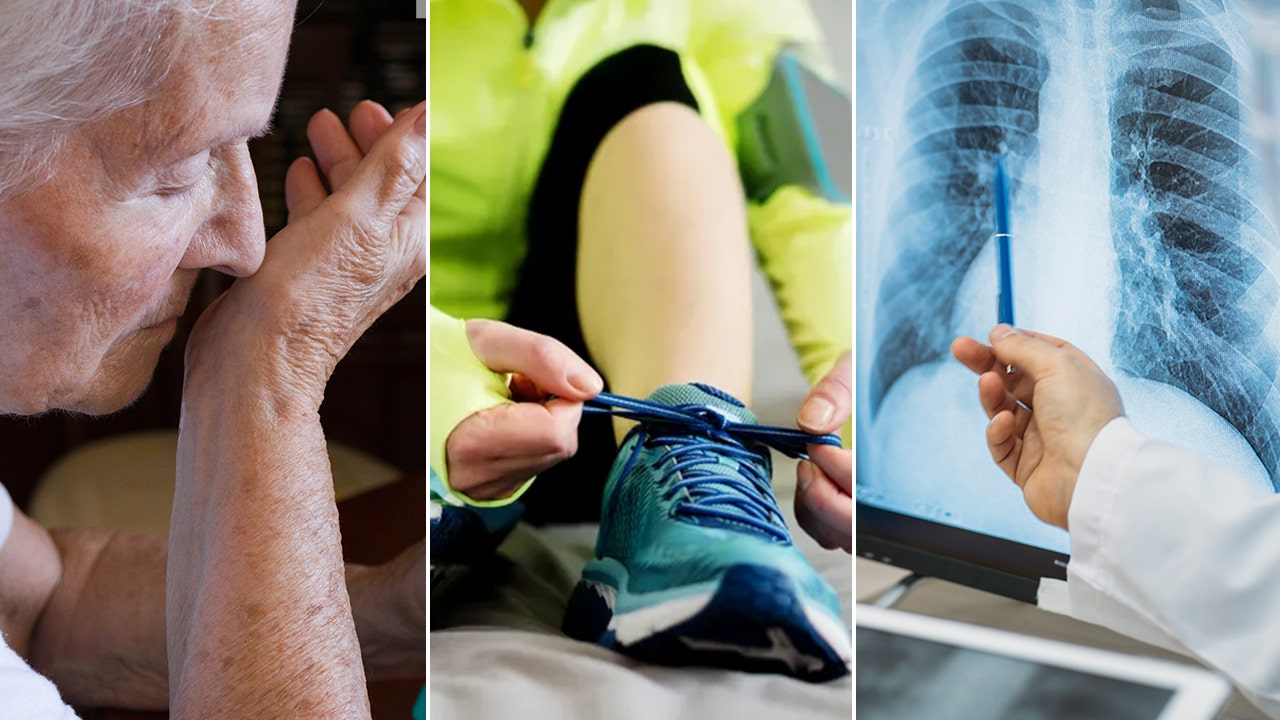Patient who died in Fredericton ER waiting room wasn’t checked for more than 2 hours, inquest hears

No medical staff checked Darrell Mesheau’s vital signs in the roughly two and a half hours before he died waiting for care at the Fredericton hospital’s emergency department, a coroner’s inquest heard Monday.
Coroner Peter Kiervin, who investigated Mesheau’s death on July 12, 2022, testified he reviewed the security video from the Dr. Everett Chalmers Regional Hospital ER, and saw no physical interactions with him between 2:03 a.m. and 4:28 a.m.
According to national standards known as the Canadian triage and acuity scale, patients like Mesheau who are triaged as being Level 3, or urgent, should be seen by a doctor within 30 minutes.
Mesheau had been at the hospital since 9:30 the night before, the jury heard. He arrived by ambulance after calling 911.
Primary care paramedic Ashley Guptill said Mesheau told her he’d had a cold for a week and tested negative for COVID-19, but he felt weak all day, short of breath on exertion, and had stomach cramps on and off. He’d also vomited that morning and had diarrhea.
His medical history included a heart attack and quadruple bypass, diabetes, some hypertension and cholesterol issues, but his heartbeat, breathing rate, temperature and blood pressure were all “unremarkable,” she said. “There was nothing glaringly obvious” and he was able to walk on his own.
The 78-year-old was later discovered “lifeless,” deputy chief coroner Emily Caissy told the jury.
Sparked outrage, prompted changes
Mesheau’s death sparked outrage across the province and prompted a major shakeup of New Brunswick’s health-care leadership.
During a news conference three days later, Premier Blaine Higgs announced the firing of Horizon Health Network president and CEO John Dornan, replaced Dorothy Shephard as health minister and removed the boards of both Horizon and Vitalité.
The presiding coroner and jury of three women and two men are hearing evidence from witnesses to determine the facts surrounding his death.
The jurors will also have the opportunity to make recommendations aimed at preventing death under similar circumstances.
‘We are human,’ says licensed practical nurse
On Monday, the inquest heard from six witnesses, including licensed practical nurse April Knowles.
Knowles was assigned to work on the psychiatric side of the waiting room the day of Mesheau’s death, but volunteered to help out in the ER because they were short-staffed.
Knowles said Mesheau’s vitals were fine when she checked them around 2:03 a.m., but she was concerned he was so pale, so she bumped his chart ahead of three other patients. He would have been the next in line for a bed, she said.
Knowles said she did a visual check on Mesheau from about 15 feet away around 3:46 a.m. and his eyes were open. She couldn’t tell whether he was breathing because he was wearing a mask.
When she checked him again, he had a pulse, but it was “very faint” and he was unresponsive. That’s when they initiated a “code blue” for respiratory distress.
“It is knowledge that we’re supposed to do an hourly check,” said Knowles, but stressed she had other patients and other duties, such as administering medicine, and fetching blankets, cold cloths or sandwiches.
“It means we are human, we are one human … doing six or seven jobs,” she said, adding that the work can be overwhelming.
17 admitted patients in ER
There were a total of 52 patients between 7 p.m. and July 11 and 5 a.m. July 12, according to then-acting nurse manager Neil Gabriel.
The ER was short-staffed. The overnight crew — already stretched thin — was down by one, leaving only one registered nurse up front to manage the department and handle all triage, he said.
But Gabriel said the main problem was that there were 17 patients in the ER who had been admitted to hospital but were waiting for a bed to become available.
He said that left nowhere to see other patients who were waiting like Mesheau, and the national standard of Level 3 patients being seen within 30 minutes was “completely unrealistic.”
Being “bed-blocked” has been a problem for years, said Gabriel, largely due to patients who are waiting in hospital for a long-term care placement.
The coroner, Peter Kiervin, said he spoke to the doctor on duty and a nurse practitioner and neither could provide a “reasonable probable cause of death,” so he ordered an autopsy be conducted.
He subsequently recommended to the chief coroner that an inquest would be “in the best interest of the public.”
One of the concerns for him was the time that elapsed between Mesheau’s arrival at the ER and death, he said.
“What’s going on here? Why is he there that long? He hasn’t seen the doctor and now he’s passed away.”
Family expected to comment
Members of Mesheau’s family attended Monday’s proceedings at the Fredericton Inn but declined to comment until Tuesday, once they’ve had an opportunity to hear more of the evidence.
In an emailed statement to CBC News last Tuesday, Mesheau’s son said the family expects the inquest will shed light on the details surrounding his father’s death.
“The family is well aware of the deplorable state of the healthcare system in New Brunswick, and we hope that the recommendations forthcoming from the inquest will help drive positive change and ensure that no New Brunswicker will face such a tragedy again,” wrote Ryan Mesheau.
A quality process review conducted by Horizon found the “lack of consistent patient monitoring and the inability to meet standards in the emergency department waiting room decreases the likelihood for early recognition in patient health decline,” documents obtained by CBC News through a right-to-information request revealed.
The coroner’s inquest was originally scheduled for last May, but was abruptly postponed when new information was brought forward, prompting an investigation by police.
In December, Fredericton police concluded Mesheau’s death did not involve criminality.
The inquest resumes Tuesday at 9 a.m. It’s scheduled to continue through Thursday.




